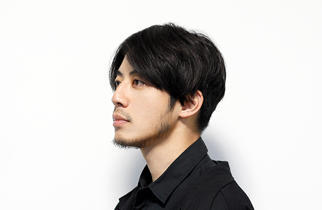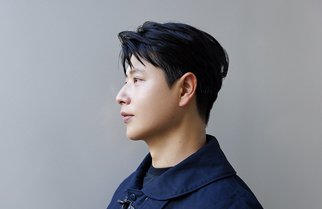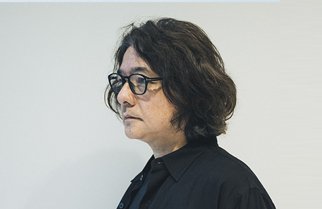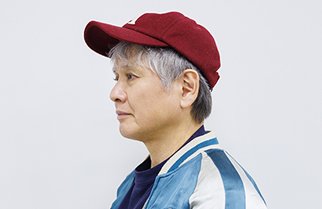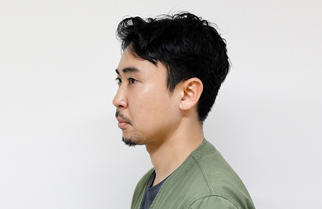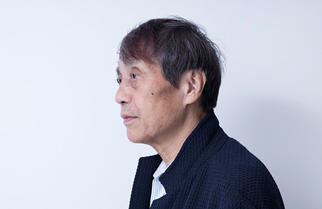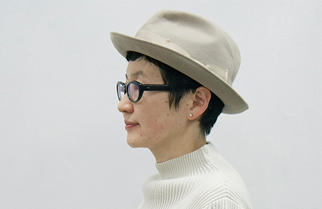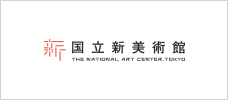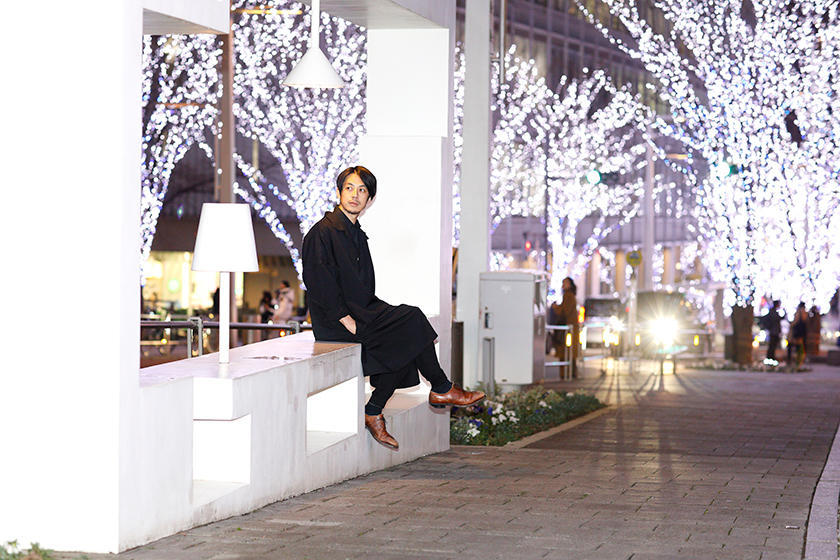

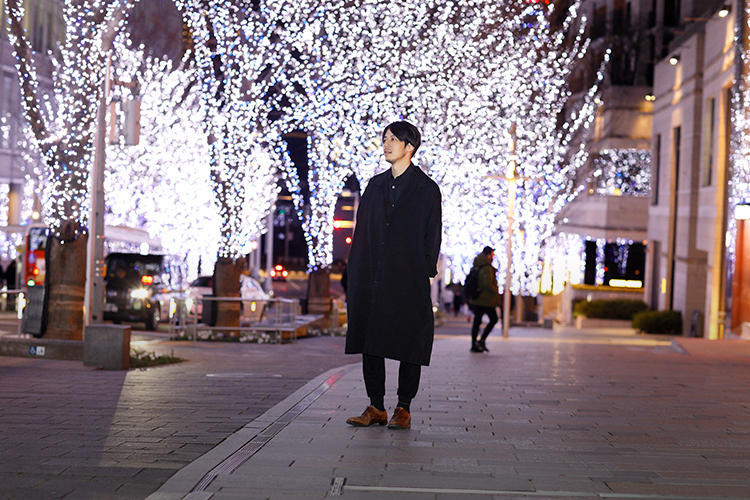
INTERVIEW
114
Akihiro NishinoPicture Book Writer / Comedian
Leave the Tasks to the Individuals Who Can Deliver
Majority-rule makes manufacturing and designing incredibly boring.
While being a comedian and an author of children's books, Akihiro Nishino is also an entrepreneur who runs Japan's biggest online salon (online community). His children's book Poupelle of Chimney Town has sold over 430,000 copies in total and was made into a play. The movie version of the story is scheduled to be in theaters in December. The influence of the book's story can also be seen in a plan to build a museum as well as urban development. We interviewed Mr. Hayashi in detail about his passion for the children's books, challenges of urban development, and principles as a leader.
Poupelle of Chimney Town is a microcosm of today's society.
The story of Poupelle of Chimney Town is set in a smoke-clogged town where no one knows the sky and stars above the smoke-filled air. When the story's protagonists looked up the sky with a conviction that there was a world beyond the smoke, the villagers ridiculed them. It is just like today's society in a microcosm where the dreamers get laughed at and the action-takers get criticized.
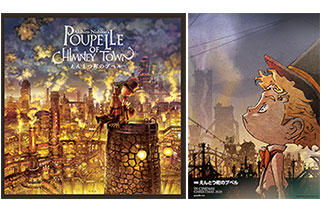
Poupelle of Chimney Town
西Having Akihiro Nishino as the scriptwriter and director, the full-color children book was created by 33 illustrators and artists who were assigned strictly to the areas of their expertise. The story takes place in Chimney Town, a microcosm of today's society, on a Halloween night when an orphan Lubicchi and a trashman Poupelle meet. Their encounter leads to miracles. A total of 430,000 copies have been sold. It will be made into a movie in December 2020 by STUDIO4℃.
When I was creating the story, I focused on how to express today's society, or more precisely, today's social media culture in Chimney Town and make it into fantasy. I still had some hopes left in society when I was scripting the story. But that was eight years ago. Today, society has become my vision of Chimney Town. People are deprived of hopes as well as the optimism that things would work out in the end. I cannot think of a better time to release Poupelle of Chimney Town in theaters.
We need hope in our lives. Over-confidence can make people take the plunge. Post-war Japan is a great example. Japan was overly confident that their hard work would pay off and grant them the position of the world leader. That over-confidence propelled the growth of the country. When there is hope, it even gives a poor country or region some stability. When the pessimism permeates, it only opens the door to disasters and people derive joy from jeopardizing and criticizing one another like we do now.
I want to change the status quo, and the best way to do that is to deliver. A few years ago, I announced to people that I would one day surpass Disney. But I got ridiculed that it was impossible and I was crazy. There is no denying how magnificent Disney is. Still, I am optimistic that the movie, Poupelle of Chimney Town, may have a chance in beating them. If my movie comes out at the same time in theaters as a Disney movie and its box office or the number of viewers beats that of the Disney, people will be intrigued and convinced that efforts do pay off.
I am not erratic. I like classic ways, not curveballs.
While the reactions I received for how I raised money for publishing through crowdfunding and made the entire content of the book available online for marketing were not very favorable, none of what I did was erratic. Instead, what I do is classic. I like classic ways, not curveballs.
Back when I started crowdfunding in 2013, people criticized me a lot. They called it a religion and swindle, and I became the target of the criticism. But what they failed to see was crowdfunding had been in the U.S. for a couple of years, but the concept was merely new in Japan. I l only leveraged what was already available. Making the content of the book available is a classic method, just as free sampling at supermarkets is. You like it; you buy it. Books at bookstores are the same. When people like the books they browsed through in bookstores, they are likely to buy them. I did exactly the same, but on the Internet. I simply do what makes sense.
When choosing books, the majority of mothers buy books that they already know are good or enjoyed being read to as a child. They only buy books that they know what it is about. Given that, it is definitely wise to reveal the content of the books to mothers here in Japan for a marketing purpose. When the books sell, the publishers will be pleased, it will generate profits for the illustrators and artists, and everyone will be happy. But, what I did still caused a backlash. Perhaps, my word choices added fuel to the criticism...
Criticism is disappointing. The thin line between "unknown" and "dislike."
Criticism is absolutely not pleasant. Especially making children's books available for free to reach out to a broader audience should not be a target of criticism. When everyone realizes that this is a standard approach to sell books, those who criticized me will not be able to utilize it for themselves for a while. Their underlying intention is to help the artists as well as publishers. But they are restricting their own possibilities by opposing to make the content available for free. The act of criticism evokes a feeling of disappointment, and people should think twice about criticizing others.
I recently delved into the nature of criticism and concluded that the feelings of "unknown" and "dislike" are extremely similar. The reason that people dislike something is often linked to it being unknown to them. When we explain the logic of making the book content available for free, it is obvious that it comes with nothing but advantages. But people tend to draw conclusions that they do not like it simply because they do not know what it is.
Things I do, I do to entertain others. So I recently stopped doing things that are "unknown" to them. Based on that realization, I stopped reaching out to the public in the initial phase. When I have something fascinating, I limit the people to whom I reveal my idea to the ones on my online salon. Only the concepts that received enormous support will be introduced to the general public. As soon as they see what the outcomes are, they react positively. Until then, no matter how eloquent I am with explaining the concept, they are predisposed to reject. I realized it is just a waste of time to attempt to persuade them when they are in the rejection mode. What I can do is prove to them, but with numbers. Only then people stop being skeptical and start listening to what I say. Since I changed the way I approach, I do not get roasted as often.

Majority-rule makes manufacturing and designing incredibly boring.
I run an online salon called Akihiro Nishino Entertainment Laboratory, which has 38,000 members. The online salon means a lot to me. To try out something fun, I have learned a closed community like this one, which is almost like an isolated country, becomes indispensable. One of the rules of the community is that we do not vote. The membership fee yields some 400,000, 000 yen annually, and I am the one who can make the ultimate decision on how the money should be spent. The outcome, hence, is also my responsibility.

Akihiro Nishino Entertainment Laboratory
Akihiro Nishino Entertainment Laboratory is an online salon (internet community) for Mr. Nishino to express his ideas on the future of the entertainment, talk about his ongoing projects, and release other information. The community boasts the largest membership of over 38,000. He posts every day and sometimes asks the members to share their opinions. His work is not limited to online but expands to the everyday life aspects like compiling the business information of the salon members onto Entertainment Laboratory MAP, creating artwork, managing events, designing advertisements, and more.
https://salon.jp/ (Click here to jump to the page)
Voting is the easiest way to dodge responsibilities. No one can pinpoint the person who is responsible for the decision because people can get away with it by blaming others. But that is the worst thing a leader can do. On the other hand, we know of the history of dictatorship and must be careful to avoid that. One thing that is certain is that majority-rule, where decisions are made conjointly, makes manufacturing and designing incredibly boring. I believe only a preponderant ego of a person can change the future, and all I can say is that we need the environment to empower that ego and designate the right person.
Creating something like The Tower of the Sun will never work in Japan today. There would be a wave of interference and criticism, accusing of the misuse of the taxes, and the plan would be aborted. Setting up meetings to discuss the project would only result in a typical, boring outcome. The only way for The Tower of the Sun to be materialized today is to have one person who is guaranteed to deliver and has supporters of his or her enthusiasm. Discussions among experts would go nowhere.
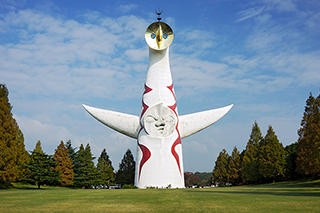
The Tower of the Sun
The Tower of the Sun is a building created in 1970 by Japanese artist Taro Okamoto. Mr. Okamoto was appointed as the producer of the symbolic Expo '70 thematic exhibitions and worked in all areas of the expo as a proposer of exhibition ideas, exhibition designer, producer, and director. He and Mr. Kenzo Tange executed exceptional ideas and dynamic exhibition techniques to create epochal exhibitions, including The Tower of the Sun.
An exceptional amount of effort is needed to earn support.
After I published Poupelle of Chimney Town, my hometown of Kawanishi in Hyogo undertook a plan to build a museum and is also discussing a plan to build a town replicating Chimney Town. Hills - Challenging Cities by Mr. Minoru Mori is a book on city revitalization, and I read it as reference for the museum and urban development. I also read Imagination Extending across Sea, which is a book about how Tokyo Disneyland was created.
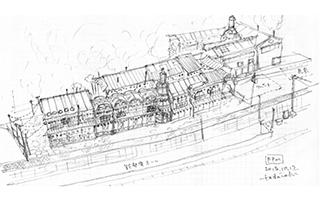
Poupelle of Chimney Town Museum
As a way to give back to his hometown, Mr. Nishino joined the project to build a museum in Kawanishi, Hyogo, where the original artworks are featured. The project crosses the boundary of urban development, as the streets of Chimney Town from the book are being replicated. In 2018, he raised roughly 60,000,000 yen through crowdfunding to apply towards the construction cost of the museum.
What I learned from those books was that urban development is not feasible unless one person is chosen to do the job. Without a circumstance where everyone agrees to appoint one person to be in charge, no project team can create another Roppongi Hills or Tokyo Disneyland. I read that the project team of Roppongi Hills created personal data for each resident and used it to bond with them. To do the same, the project team of Tokyo Disneyland held a lot of parties and invited the locals. I must say that the books were packed with valuable information. No one should build a museum without a framework nor arrogantly talk to the residents at the resident orientation.
The first step I took in Kawanishi was opening a bar, so it serves as an oasis for the locals. I also went there often to drink and talk openly with them. I offered my help when needed and established enough trust for them to support my idea of building the museum. I also knew that meeting people in a particular order was essential, and skipping people could interrupt the project. Speaking to people from the stage would cause adversity. Why? That is because they feel intimidated. They would wonder what absurdity this outsider from Tokyo is going to create, as there is a lack of trust from the locals. The assumption that everyone should be happy because the project would bring prosperity is a biased opinion. Some people do not want their peace disturbed, and their concern needs to be appropriately addressed.
If a person wants to be in charge, he or she needs to work for it. This means laying the groundwork and knocking on everyone's door. Creating an intriguing city requires the person to be modest to as many people as imaginable. It is really about the quantity, not the sense of the person. The city should offer stimulations, so even walking through the streets is fun. Instead of making the entire city barrier-free, the city should offer some interesting alternatives, like narrow streets that come with adventures.
Select one person to be entirely in charge of producing Roppongi Art Night
To make Roppongi Art Night successful, my intuition says delegating someone or entrusting someone to be in charge of producing the event is the key. Don't you think that is a good idea?
While I feel Roppongi Art Night is an excellent activator, I noticed that there are different people in charge of different roles for the event. One person should be selected to be in charge of everything and produce the event entirely in a centralized manner this year. Since the person needs to be adept in both creation and communication to take care of the creative and advertisement aspects of the event, the candidates will be very selective. To top it off, it has to be someone who is very obstinate and does not care to listen to others. He or she cannot be persuaded even by a large number of people.
Ego is what is needed. I purposefully chose the word ego because a more beautiful word like 'enthusiasm' would fail to convey the meaning. As Florence of Italy rose to be a prominence city because of the autocratic power of the Medici Family, I know only the ruling ego of a person can change the future. It has to be someone who is unreasonably self-centered, someone who is abhorred by certain groups of people and stands firmly by his or her ego. Like myself, Ms. Mika Ninagawa or Team Lab's Mr. Toshiyuki Inoko. Maybe I am forgetting someone. I understand being mentioned here under this context is not very honorable. But everyone else seems to be very proper and extra careful not to step on other people's toes. But nothing fun will come out of it if no one stands firmly by what they said. We need someone very determined to execute; someone who would not be scared to resign the last minute if things do not go the right way.
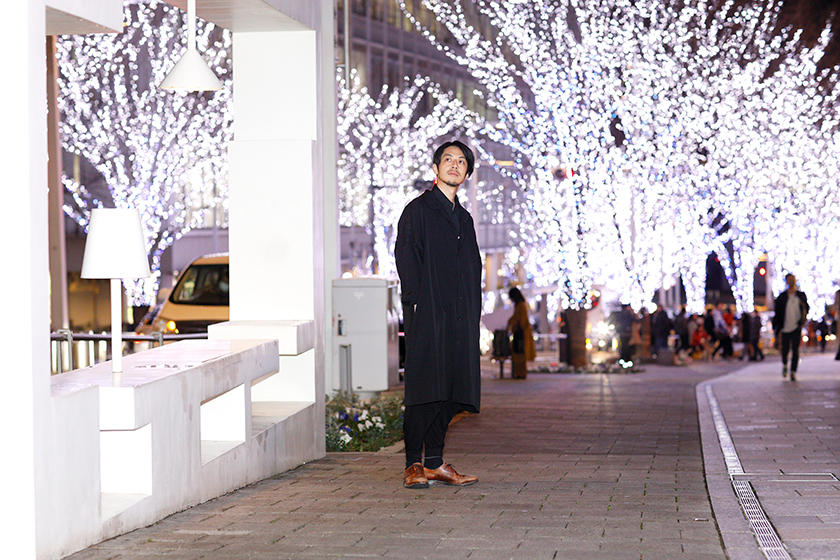
Set a goal. Work hard to deliver.
Let's say I was offered a job to be a part of some project and promised to deliver as long as I could do it my way. But later, someone with an important title commented on my work and interfered with my way. I would simply resign from the job. By compromising even one element of my idea, all the money and work would be wasted. While I would not be criticized, it would also mean that no one would notice me either. To me, it serves no purpose if nothing comes out of it and makes zero profit.
What I hate is not being able to deliver. The initial goal, whether it is to convene some 100,000 people or generate some 100,000,000 yen in profit, is extremely important. I despise it when the goal was not met and nothing was achieved, but people are complacent with their effort. I have an endless list of ideas to propose on Akihiro Nishino Entertainment Laboratory, including sending aid to the slums of the Philippines and building elementary schools in Laos. Something all my ideas have in common is to deliver borderless entertainment. I have to think outside the box and approach my goals in the most proper way, with some occasional detours.
Among the 38,000 members on my online salon today, some of them are the executives of publicly traded companies or renowned artists. So I find myself being approached directly by companies more often to create promotional materials for them. The concept of one comedian managing an advertising agency is something I have never dreamed of, and I am very thrilled. However, no amount of money can make me manage it unless my heart is in it. With that being said, I anticipate the turnout from my advertising business will be truly compelling.
Protecting your own dignity after making a compromise is pathetic.
One of the things that Lubicchi in Poupelle of Chimney Town is told by bullies is to read between the lines and be with them. And that is something I was always told. That is a huge insult to me. When I mentioned that I had no intention to be on the panel with other comedians on TV shows, the viewers disapproved of me. They said that I should read between the lines and go with the flow by making an appearance on TV shows just like other comedians.
I used to wonder why people say what they say, how they came up with some ideas, and what it means to them to tell someone else to read between the lines. What I am beginning to see is these people came from the past where they had to compromise at one point, and they find those who do not compromise unacceptable. In other words, when they see that those who do not compromise stay confident and deliver their goals, they are made to feel that compromising was a mistake. Since there is underlining fear of coming to terms with this realization, they try to eliminate any possibility from that happening because they want to protect their dignity. But how pathetic is that?
In the story, bullies told Lubicchi, who wanted to see the starts behind the curtains of smoke, to read between the lines and stop believing nonsense. But the movie version also tells the story from the bullies' perspective. The book could only cover 30% of the story. The tale of Lubicchi's father has an important role, and the movie covers that as well. The feedback we are getting for the movie is quite positive. Now that the movie is materialized, I am determined to see the result in good numbers.
Editor's Thoughts
What is it that a person needs in order to deliver? During the interview, Mr. Nishino used the word 'deliver' repeatedly. He does not want surprises but something straightforward. His great sense of responsibility to 'deliver' is evident in the ways he applies an astonishing amount of effort and believes in the classic approach. The movie Poupelle of Chimney Town is scheduled to be in theaters in December 2020. Our anticipation for the opening of the museum in the near future is also high. (text_tami okano)
(Photos of Roppongi Keyakizaka-dori provided by Roppongi Hills)
RANKING
ALL
CATEGORY




